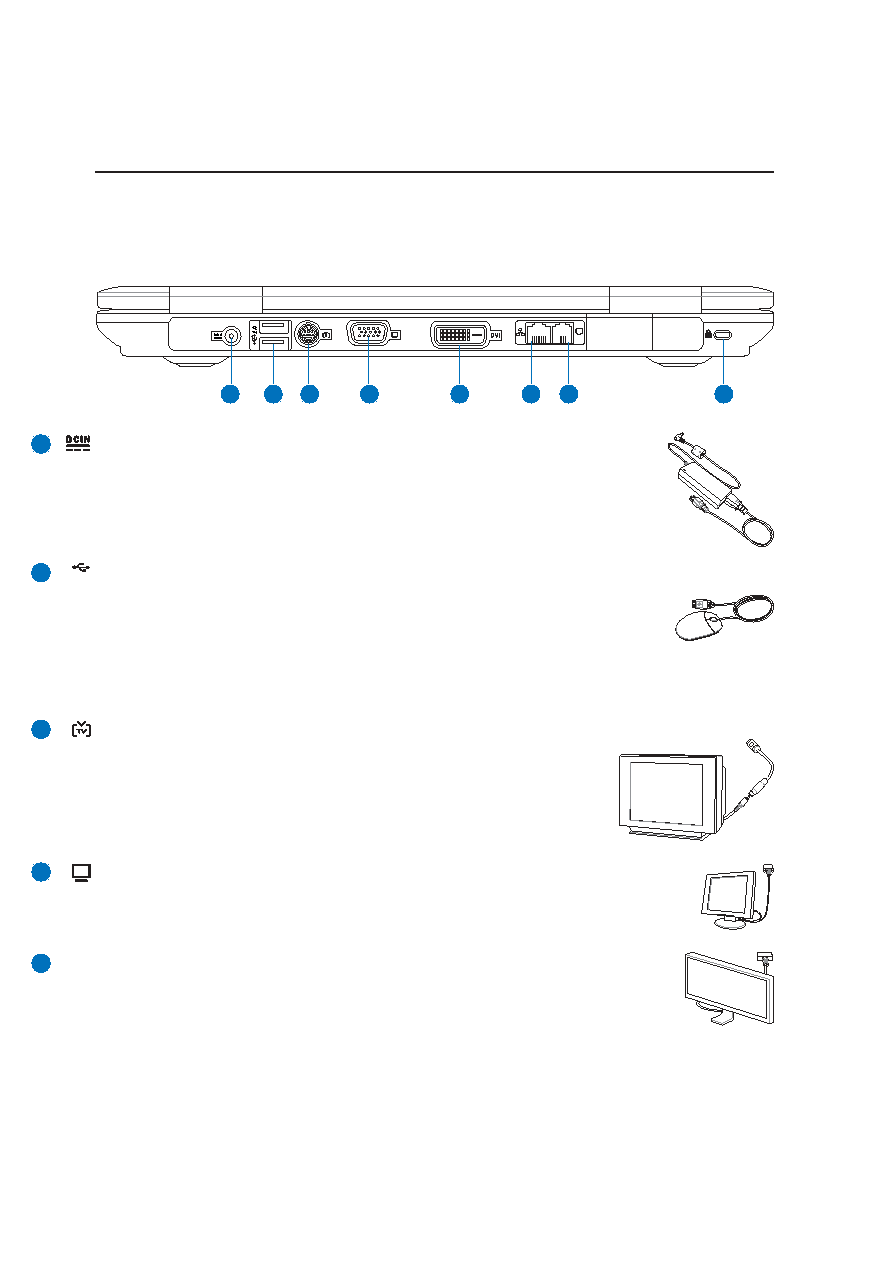
20
2 Knowing the Parts
Rear Side
Refer to the diagram below to identify the components on this side of the Notebook PC.
2
3
1
2.0 USB Port (2.0/1.1)
The Universal Serial Bus is compatible with USB 2.0 or USB 1.1 devices such as
keyboards, pointing devices, cameras, hard disk drives, printers, and scanners connected
in a series up to 12Mbits/sec (USB 1.1) and 480Mbits/sec (USB 2.0). USB allows
many devices to run simultaneously on a single computer, with peripherals such as USB keyboards and
some newer monitors acting as additional plug-in sites or hubs. USB supports hot-swapping of devices
so that most peripherals can be connected or disconnected without restarting the computer.
Display (Monitor) Output
The 15-pin D-sub monitor port supports a standard VGA-compatible device such as a
monitor or projector to allow viewing on a larger external display.
TV-Out Port
The TV-Out port is an S-Video connector that allows routing the Notebook
PC’s display to a television or video projection device. You can choose
between simultaneouly or single display. Use an S-Video cable (not provided)
for high quality displays or use the provided RCA to S-Video adapter for
standard video devices. This port supports both NTSC and PAL formats.
Display (DVI-D) Output (on selected models)
The Digital Video Interface port is designed to maximize video graphics output to flat
panel LCD monitors or other DVI-compliant device.
DVI-D
4
5
1
2
4
3
5
7
6
8
Power (DC) Input
The supplied power adapter converts AC power to DC power for use with this jack. Power
supplied through this jack supplies power to theASUS Notebook PC and charges the internal
battery pack. To prevent damage to the ASUS Notebook PC and battery pack, always use the
supplied power adapter. CAUTION: MAY BECOME WARM TO HOT WHEN IN USE.
BE SURE NOT TO COVER THE ADAPTER AND KEEP IT AWAY FROM YOUR BODY.

